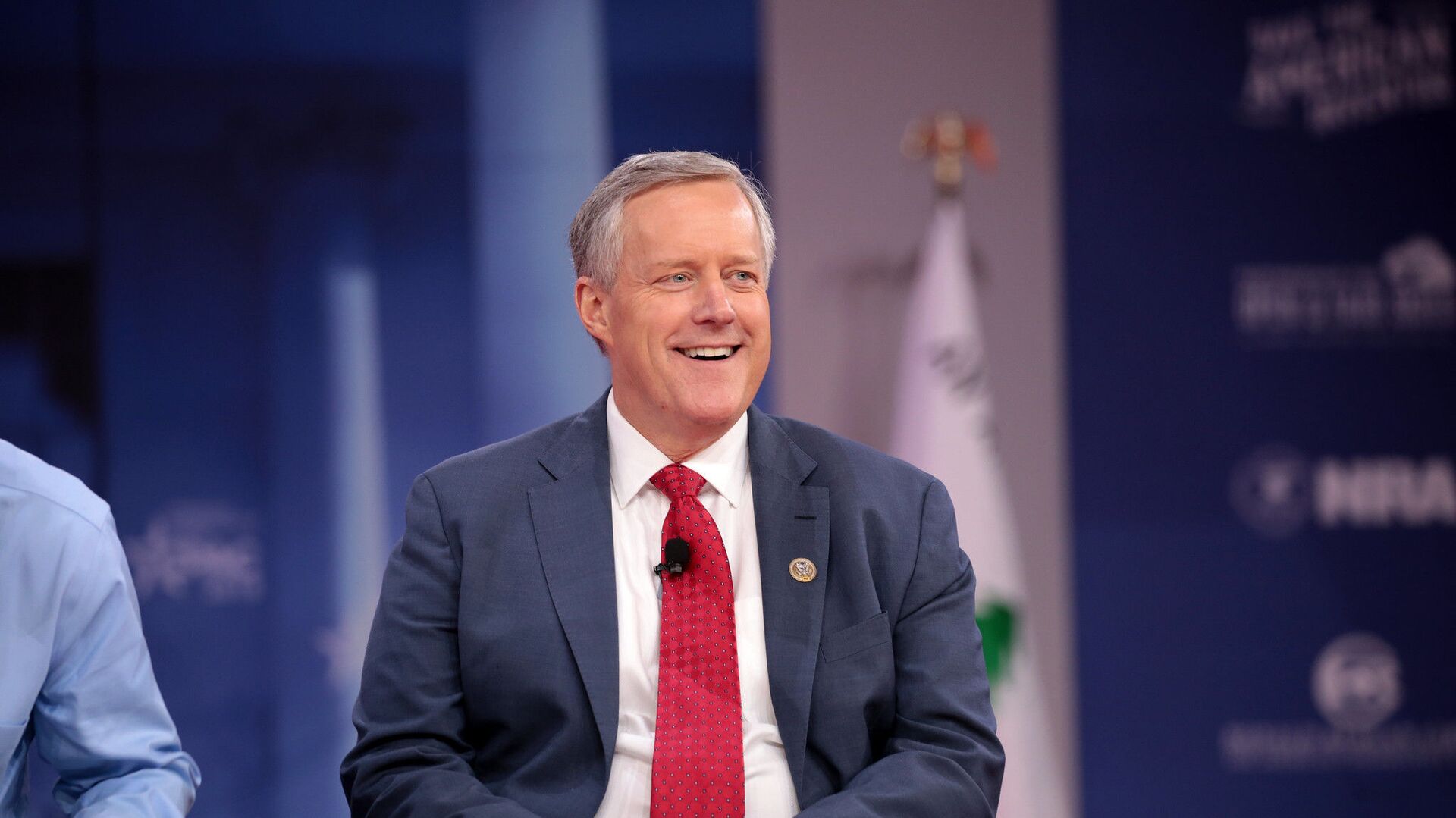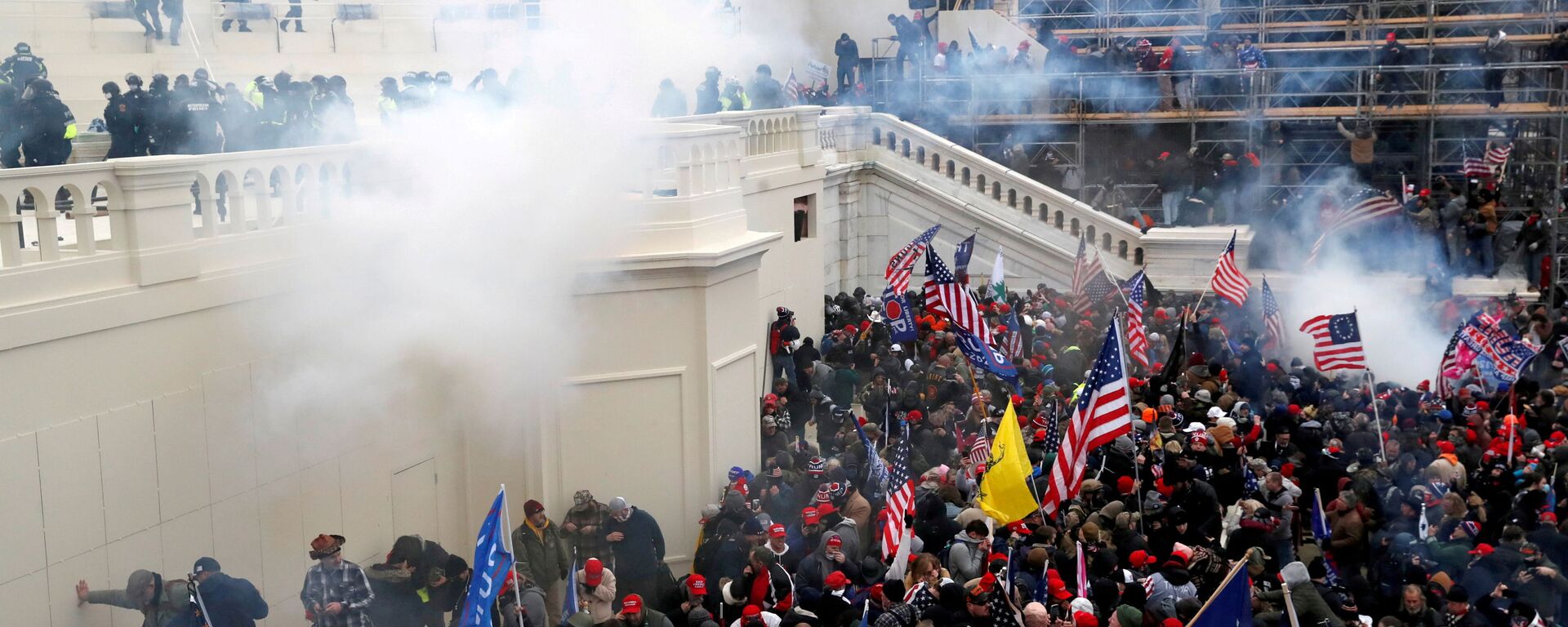Meadows Refuses to Cooperate With Jan. 6 Committee as House Panel Files Contempt Threat
22:23 GMT 11.11.2021 (Updated: 04:24 GMT 12.11.2021)
Subscribe
Last month, the US House of Representatives voted to hold former Trump adviser Steve Bannon in criminal contempt of Congress for refusing to cooperate with a probe into the 6 January events.
Mark Meadows, one of the four White House Chiefs of Staff under former US President Donald Trump, has informed the House January 6 committee that he won’t cooperate until courts rule on Trump’s claim that he is protected by executive privilege.
US President Joe Biden has said he will not extend executive privilege or immunity to those sought after by the House January 6 committee.
The Biden administration has stated that it does not believe executive privilege protects those who are being investigated under the purview of the January 6 Capitol riot. The administration has further indicated that Trump has asserted those privileges.
According to the Cornell Law School, “Executive privilege is the power of the president and other officials in the executive branch to withhold certain forms of confidential communication from the courts and the legislative branch.”
Executive privilege is not unilateral, and a court can determine its applicability. The United States v. Nixon set the precedent that the president is legally required to provide evidence of their communications with their aides if the information is related to a criminal case.
"Contrary to decades of consistent bipartisan opinions from the Justice Department that senior aides cannot be compelled by Congress to give testimony, this is the first president to make no effort whatsoever to protect presidential communications from being the subject of compelled testimony," George Terwilliger, an attorney for Meadows, said in a statement.
"Mr. Meadows remains under the instructions of former President Trump to respect longstanding principles of executive privilege. It now appears the courts will have to resolve this conflict."
Meadows was with Trump on January 6 and investigators have sought details over his communications with the former president, the Justice Department, and the organizers of the deadly rally.
Meadows was originally subpoenaed in September to produce documents connected to the rally by October 7th, ahead of a deposition to be carried out a week later. However, he was later granted a postponement of the initial subpoena deadline as he was negotiating with committee members.
To date, Meadows has yet to hand over the desired documents.
Shortly after Meadows made it known that he would not be cooperating with the House panel, congressional lawmakers issued a notice threatening to hold Meadows in contempt of Congress if he proceeds in such a manner and fails to appear before his Friday deposition.
Jan. 6 committee threatens to hold Meadows in contempt of Congress if he doesn’t appear for a deposition tomorrow pic.twitter.com/24Th2XNPNA
— Katherine Faulders (@KFaulders) November 11, 2021
The House January 6 Committee used the threat of prosecution when Steve Bannon, who was also subpoenaed back in September, failed to cooperate with the investigation. It remains to be seen if executive privileges will shield Meadows and Bannon from legal recourse should they decide not to testify, but it does extend their ability to be uncooperative.


